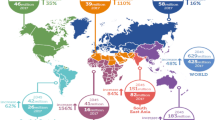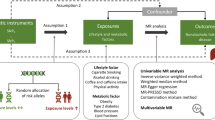Abstract
We investigated whether PPAR-γ2 gene polymorphisms are associated with serum lipids and the occurrence of coronary heart disease (CHD) prospectively characterised for the presence or absence of Type 2 diabetes in a Turkish population. Our study included 202 patients with CHD (102 with diabetes, 100 without diabetes) and 105 controls. PPARγ genotypes were determined by PCR-RFLP technique. The PPARγ-C161T CC homozygote genotype was associated with significantly increased CHD risk when compared with the T allele carriers (CT+TT) in CHD patients with diabetes (OR:1.951, 95%CI: 1.115–3.415, P = 0.019), whereas PPARγ-P12A polymorphism was not associated with CHD risk (P > 0.05). Serum HDL-C levels were significantly lower in controls with the P12A heterozygote when compared with the P12P homozygote (P = 0.002). In the CHD patients with diabetes, CT heterozygote genotype showed higher serum triglyceride than the CC homozygote genotype (CT:2.42 ± 1.89 vs. CC:1.61 ± 0.21, P = 0.015). Our findings shows the association of these two polymorphisms with serum triglyceride levels, which was increased in the order of P12P-CC < P12P-CT < P12A-CC < P12A-CT in the CHD patients with diabetes. Furthermore, we observed that the increasing effects of the CT genotype on serum triglyceride levels could be modified by PPARγ P12A polymorphism (P12A-CT:2.30 ± 1.75 vs. P12P-CC:1.79 ± 1.14, P = 0.028). We suggested that homozygote CC genotype of the PPARγ C161T polymorphism might be associated with an increased CHD risk especially in patients with diabetes. We observed that the C161T CT heterozygote genotype shows an unfavorable effect on serum lipid profile in CHD patients with diabetes and this effect was weaken with the presence of P12P homozygote genotype.

Similar content being viewed by others
Abbreviations
- PPARγ:
-
Peroxisome proliferator-activated receptor-γ
- CHD:
-
Coronary heart disease
- BMI:
-
Body mass index
- TC:
-
Total cholesterol
- TG:
-
Triglyceride
- HDL-C:
-
HDL-cholesterol
- LDL-C:
-
LDL-cholesterol
- VLDL-C:
-
VLDL-cholesterol
- SBP:
-
Systolic blood pressure
- DBP:
-
Diastolic blood pressure
- PCR-RFLP:
-
Polymerase chain reaction-restriction fragment length polymorphism
References
Expert Panel High Blood Cholesterol Adults (1993) Summary of the second report of the National Cholesterol Education Program (NCEP) expert panel on detection, evaluation, and treatment of high blood cholesterol in adults (Adult Treatment Panel II). JAMA 269: 3015–3023
Beaven SW, Tontonoz P (2006) Nuclear receptors in lipid metabolism: targeting the heart of dyslipidemia. Ann Rev Med 57:313–329
Kota BP, Huang TH, Roufogalis BD (2005) An overview on biological mechanisms of PPARs. Pharmacol Res 51:85–94
Clark RB, Bishop-Bailey D, Estrada-Hernandez T, Hla T, Puddington L, Padula SJ (2000) The nuclear receptor PPAR gamma and immunoregulation: PPAR gamma mediates inhibition of helper T cell responses. J Immunol 164:1364–1371
Marx N, Schönbeck U, Lazar MA, Libby P, Plutzky J (1998) Peroxisome proliferator–activated receptor gamma activators inhibit gene expression and migration in human vascular smooth muscle cells. Circ Res 83:1097–1103
Ricote M, Huang J, Fajas L, Li A, Welch J, Najib J, Witztum JL, Auwerx J, Palinski W, Glass CK (1998) Expression of the peroxisome proliferator–activated receptor γ (PPARγ) in human atherosclerosis and regulation in macrophages by colony stimulating factors and oxidized low density lipoprotein. Proc Natl Acad Sci USA 95:7614–7619
Temelkova-Kurktschiev T, Hanefeld M, Chinetti G, Zawadzki C, Haulon S, Kubaszek A, Koehler C, Leonhardt W, Staels B, Laakso M (2004) Ala12Ala genotype of the peroxisome proliferator–activated receptor gamma2 protects against atherosclerosis. J Clin Endocrinol Metab 89:4238–4242
Meirhaeghe A, Fajas L, Helbecque N, Cottel D, Auwerx J, Deeb SS, Amouyel P (2000) Impact of the peroxisome proliferator activated receptor gamma2 Pro12Ala polymorphism on adiposity, lipids and non-insulin-dependent diabetes mellitus. Int J Obes Relat Metab Disord 24:195–199
Deeb SS, Fajas L, Nemoto M, Pihlajamäki J, Mykkänen L, Kuusisto J, Laakso M, Fujimoto W, Auwerx J (1998) A Pro12Ala substitution in PPARgamma2 associated with decreased receptor activity, lower body mass index and improved insulin sensitivity. Nat Genet 20:284–287
Altshuler D, Hirschhorn JN, Klannemark M, Lindgren CM, Vohl MC, Nemesh J (2000) The common PPARgamma Pro12Ala polymorphism is associated with decreased risk of type 2 diabetes. Nat Genet 26:76–80
Masud S, Ye S, SAS Group (2003) Effect of the peroxisome proliferator activated receptor-gamma gene Pro12Ala variant on body mass index: a meta-analysis. J Med Genet 40:773–780
Doney AS, Fischer B, Cecil JE, Boylan K, McGuigan FE, Ralston SH, Morris AD, Palmer CN (2004) Association of the Pro12Ala and C1431T variants of PPARG and their haplotypes with susceptibility to Type 2 diabetes. Diabetologia 47:555–558
Ostgren CJ, Lindblad U, Melander O, Melander A, Groop L, Rastam L (2003) Peroxisome proliferator-activated receptor-gammaPro12Ala polymorphism and the association with blood pressure in type 2 diabetes: skaraborg hypertension and diabetes project. J Hypertens 21:1657–1662
Ridker PM, Cook NR, Cheng S, Erlich HA, Lindpaintner K, Plutzky J, Zee RY (2003) Alanine for proline substitution in the peroxisome proliferator-activated receptor gamma-2 (PPARG2) gene and the risk of incident myocardial infarction. Arterioscler Thromb Vasc Biol 23:859–863
Doney AS, Fischer B, Leese G, Morris AD, Palmer CN (2004) Cardiovascular risk in type 2 diabetes is associated with variation at the PPARG locus: a Go-DARTS study. Arterioscler Thromb Vasc Biol 24:2403–2407
Pischon T, Pai JK, Manson JE, Hu FB, Rexrode KM, Hunter D, Rimm EB (2005) Peroxisome proliferator-activated receptor-gamma2 P12A polymorphism and risk of coronary heart disease in US men and women. Arterioscler Thromb Vasc Biol 25:1654–1658
Meirhaeghe A, Fajas L, Helbecque N, Cottel D, Lebel P, Dallongeville J, Deeb S, Auwerx J, Amouyel P (1998) A genetic polymorphism of the peroxisome proliferator-activated receptor gamma gene influences plasma leptin levels in obese humans. Hum Mol Genet 7:435–440
Wang XL, Oosterhof J, Duarte N (1999) Peroxisome proliferator-activated receptor gamma C161 → T polymorphism and coronary artery disease. Cardiovasc Res 44:588–594
Bluher M, Klem T, Gerike T, Krankergerg H, Schuler G, Paschke R (2002) Lack of association between peroxisome proliferator-activated receptor-gamma-2 gene variants and occurrence of coronary heart disease in patients with diabetes mellitus. Eur J Endocrinol 146:545–551
Yen CJ, Beamer BA, Negri C, Silver K, Brown KA, Yarnall DP, Burns DK, Roth J, Shuldiner AR (1997) Molecular scanning of the human peroxisome proliferator activated receptor gamma (hPPAR gamma) gene in diabetic Caucasians: identification of a Pro12Ala PPAR gamma 2 missense mutation. Biochem Biophys Res Commun 241:270–274
Flavell DM, Jamshidi Y, Hawe E, Pineda Torra I, Taskinen MR, Frick MH, Nieminen MS, Kesäniemi YA, Pasternack A, Staels B, Miller G, Humphries SE, Talmud PJ, Syvänne M (2002) Peroxisome proliferator-activated receptor alpha gene variants influence progression of coronary atherosclerosis and risk of coronary artery disease. Circulation 105:1440–1445
Szeto CC, Chow KM, Poon PYK, Kwan BCH, Li PKT (2008) Peroxisome proliferator-activated receptor-gamma gene polymorphism and risk of cardiovascular disease in patients with diabetic nephropathy. Am J Nephrol 28:715–722
Rhee EJ, Kwon CH, Lee WY, Kim SY, Jung CH, Kim BJ, Sung KC, Kim BS, Oh KW, Kang JH, Park SW, Kim SW, Lee MH, Park JR (2007) No association of Pro12Ala polymorphism of PPAR-gamma gene with coronary artery disease in Korean subjects. Circ J 71:338–342
Zafarmand MH, van der Schouw YT, Grobbee DE, de Leeuw PW, Bots ML (2008) Peroxisome proliferator-activated receptor gamma-2 P12A polymorphism and risk of acute myocardial infarction, coronary heart disease and ischemic stroke: a case-cohort study and meta-analyses. Vasc Health Risk Manag 4:427–436
Vogel U, Segel S, Dethlefsen C, Tjønneland A, Saber AT, Wallin H, Jensen MK, Schmidt EB, Andersen PS, Overvad K (2009) PPARγ Pro12Ala polymorphism and risk of acute coronary syndrome in a prospective study of Danes. BMC Med Genet 10:1–9
Chao TH, Li YH, Chen JH, Wu HL, Shi GY, Liu PY, Tsai WC, Guo HR (2004) The 161TT genotype in the exon 6 of the peroxisome-proliferator-activated receptor γ gene is associated with premature acute myocardial infarction and increased lipid peroxidation in habitual heavy smokers. Clin Sci 107:461–466
Erdogan M, Karadeniz M, Eroglu Z,Tezcanli B, Selvi N, Yilmaz C (2007) The relationship of the peroxisome proliferator-activated receptor-gamma 2 exon 2 and exon 6 gene polymorphism in Turkish type 2 diabetic patients with and without nephropathy. Diabetes Res Clin Pract 78:355–359
Liu Y, Yuan Z, Liu Y, Zhang J, Yin P, Wang D, Wang Y, Kishimoto C, Ma A (2007) PPARg gene C161T substitution is associated with reduced risk of coronary artery disease and decreased proinflammatory cytokine expression. Am Heart J 154:718–724
Dongxia L, Qi H, Lisong L, Jincheng G (2008) Association of peroxisome proliferator-activated receptorgamma gene Pro12Ala and C161T polymorphisms with metabolic syndrome. Circ J 72:551–557
Maeda A, Gohda T, Funabiki K, Horikoshi S, Tomino Y (2004) Peroxisome proliferator-activated receptor gamma gene polymorphism is associated with serum triglyceride levels and body mass index in Japanese Type 2 diabetic patients. J Clin Lab Anal 18:317–321
Moon MK, Cho YM, Jung HS, Park YJ, Yoon KH, Sung YA, Park BL, Lee HK, Park KS, Shin HD (2005) Genetic polymorphisms in peroxisome proliferator-activated receptor gamma are associated with Type 2 diabetes mellitus and obesity in the Korean population. Diabet Med 22:1161–1166
Sundvold H, Lien S (2001) Identification of a novel peroxisome proliferator-activated receptor (PPAR) gamma promoter in man and transactivation by the nuclear receptor RORalpha1. Biochem Biophys Res Commun 287:383–390
Stumvoll M, Haring H (2002) The peroxisome proliferator activated receptor-gamma2 Pro12Ala polymorphism. Diabetes 51:2341–2347
Tai ES, Corella D, Deurenberg-Yap M, Adiconis X, Chew SK, Tan CE, Ordovas JM (2004) Differential effects of the C1431T and Pro12Ala PPARgamma gene variants on plasma lipids and diabetes risk in an Asian population. J Lipid Res 45(4):674–685
Acknowledgments
This study was supported by a grant from the Scientific Research Projects Coordination Unit of Istanbul University (Project No: 946).
Conflict of interest
Authors declare that no competing interests exist.
Author information
Authors and Affiliations
Corresponding author
Rights and permissions
About this article
Cite this article
Yilmaz-Aydogan, H., Kurnaz, O., Kurt, O. et al. Effects of the PPARG P12A and C161T gene variants on serum lipids in coronary heart disease patients with and without Type 2 diabetes. Mol Cell Biochem 358, 355–363 (2011). https://doi.org/10.1007/s11010-011-0987-y
Received:
Accepted:
Published:
Issue Date:
DOI: https://doi.org/10.1007/s11010-011-0987-y




